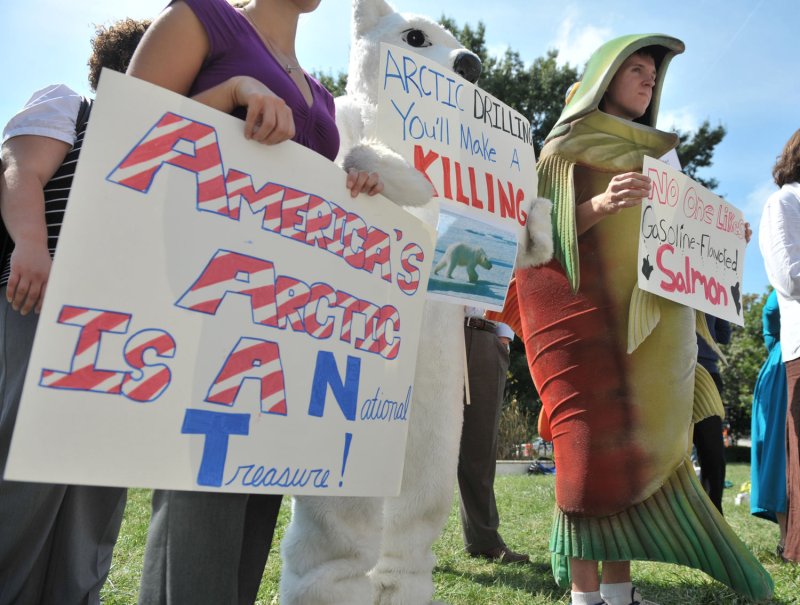Members of the Alaska Wilderness League and the World Wildlife Fund hold an event to call attention to the need to completely study the impacts of oil and gas development on the Arctic before beginning any drilling operations, in Washington on September 21, 2009. UPI/Kevin Dietsch |
License Photo
WASHINGTON, Sept. 22 (UPI) -- House legislators divided along partisan lines during a hearing examining whether to open part of the Arctic National Wildlife Refuge to drilling.
U.S. Rep. Doc Hastings, R-Wash., chairman of the House Committee on Natural Resources, said last week that tapping into hydrocarbon resources on less than 3 percent of the 20 million-acre Arctic National Wildlife Refuge in Alaska could provide a boost to the U.S. economy.
The U.S. Geological Survey estimates there are at least 5.7 billion barrels of technically recoverable crude oil and natural gas liquids within the so-called 1002 Area of ANWR.
Rep. Ed Markey, D-Mass, testified that energy companies hold more offshore oil reserves than "we could ever get" from ANWR. But Alaska Gov. Sean Parnell said oil from his state "could help meet U.S. demand for the next 25 years or longer."
Conservationists, however, said some members of Congress have touted ANWR drilling as the solution to everything from health benefits for coal workers to unemployment, the latest concern on Capitol Hill.
"I am disappointed to say that today we are engaged in nothing more than political theater," Gene Karpinski, chairman of the League of Conservation Voters, said in prepared remarks."Drilling in the Arctic Refuge is and always will be a political hot potato that has been voted on 20 times in the past 30 years, in the House of Representatives alone."
The U.S. Energy Information Agency says total production from ANWR would represent, at most, around 1 percent of the total world oil consumption.














